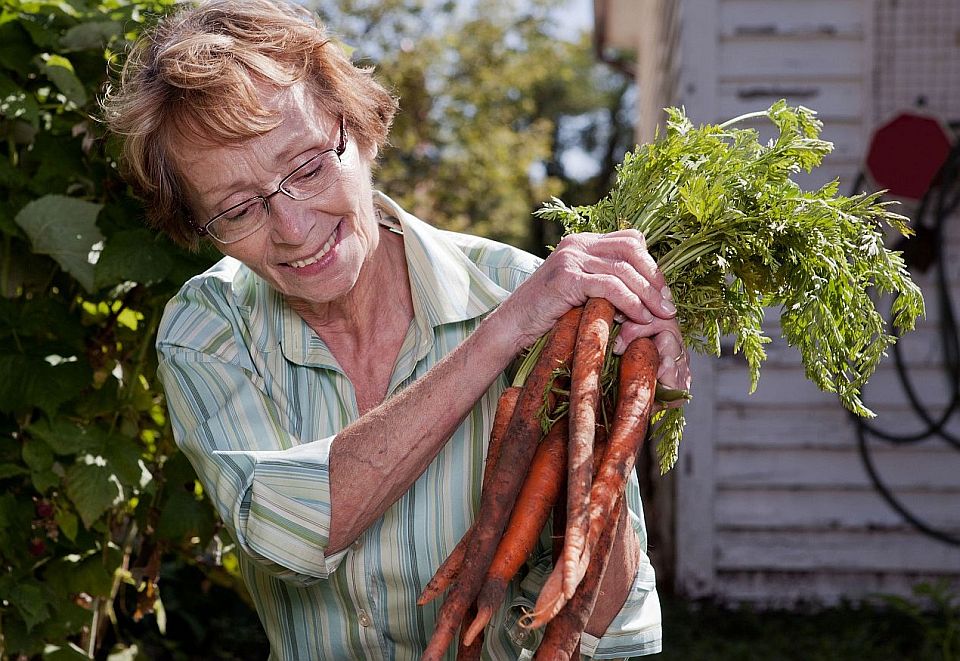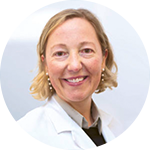-
Healthy advice
-
How should I eat to stay as healthy as possible? Soon, the e-Nutrition-Optimizer will be able to answer that question. Age researcher Heike Bischoff-Ferrari wants to use it to embed nutritional advice for healthy aging in everyday clinical practice. University Hospital Zurich could become a pioneer.
-
 «Healthy ideas for my diet.»
«Healthy ideas for my diet.»How many carrots do you eat per week? How much milk do you drink per day? The e-Nutrition-Optimizer wants to know precisely. And for good reason: “Our diet has a huge impact on our health,” says Professor Heike Bischoff-Ferrari, Head of the Department of Geriatrics and the Age and Mobility Center at the University Hospital Zurich (USZ). She and her team are developing an electronic diet optimizer. When patients fill out the e-Nutrition-Optimizer questionnaire, they immediately receive an evaluation of their nutritional habits. This gives a clear overview of their eating patterns as well as the associated risks of developing particular illnesses.
Most importantly, they also receive individual advice on how to adjust their diet to stay healthy. The e-Nutrition-Optimizer compares individual eating habits with eating patterns that are scientifically proven to improve health. This applies in particular to the Mediterranean diet: eating lots of fruit and vegetables and high-quality carbohydrates but little meat significantly reduces the risk of heart disease and diabetes. Studies have also shown that the MIND diet, which includes food like berries and nuts, can help slow the onset of Alzheimer’s.
“This knowledge has thus far had very little impact on medical treatment,” says Bischoff-Ferrari. In particular, until now, there has been no simple instrument for recording people’s eating habits. This is what the e-Nutrition-Optimizer is designed to do. Bischoff-Ferrari envisages the application being used by people of all ages. It will be particularly helpful for people above the age of 50, as an important part of an active and healthy lifestyle during a phase of life in which muscle loss and the risk of chronic illnesses increase.
The e-Nutrition-Optimizer is deliberately not designed as an app, but is intended to be integrated into professional consultations. Bischoff-Ferrari’s vision is that in future, everyone who is treated at University Hospital Zurich, regardless of their condition, will receive an individual consultation on how they can improve their health through nutrition. “This would make UHZ a pioneer in prevention,” says Bischoff-Ferrari. Her team is also creating a training program for doctors – so they know exactly who needs to be eating more carrots each week.
Support the development of the nutrition optimizer and other services for healthy aging.
-
100% financed

-
-
Project management
-
-

Prof. Dr. Heike Bischoff-Ferrari
Director of the Department of Geriatrics
Head of the Age and Mobility Center
Chair of Geriatrics and Age Research
University Hospital Zurich
-
-
Supporting partner
-
-
Dr. Hans-Peter Wild
